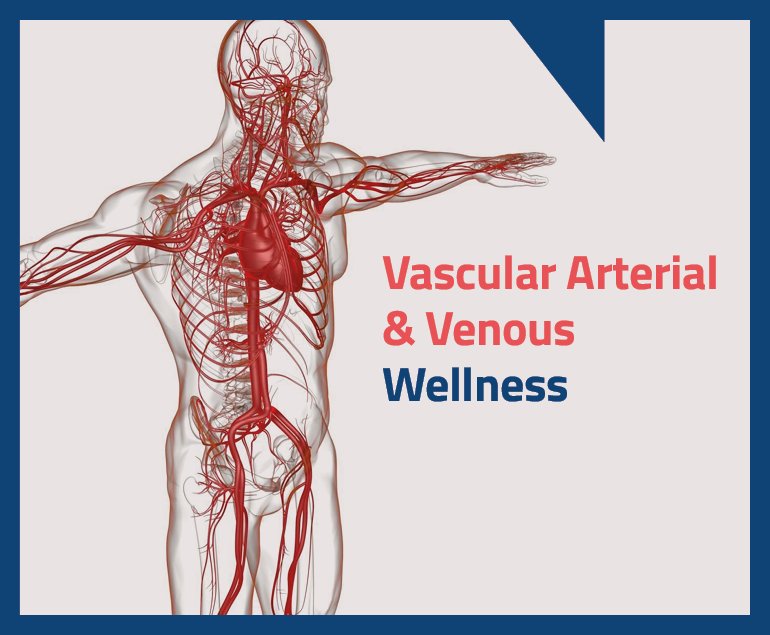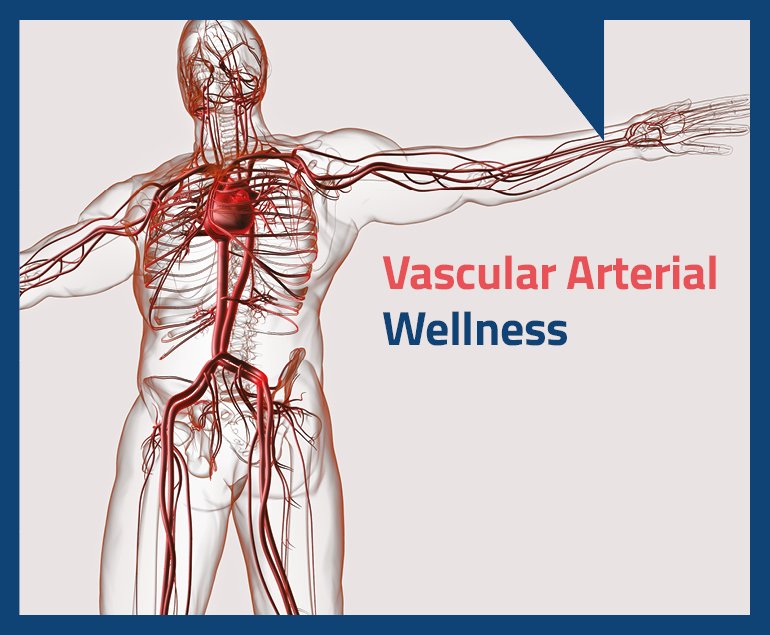Overview of Vascular Surgery at Northern Heart Hospital
At Northern Heart Hospital, our specialised vascular surgery unit provides a comprehensive range of treatments for conditions affecting blood vessels and the lymphatic system. From minimally invasive procedures like angioplasty and stenting to complex arterial and venous surgeries, our expert team is dedicated to providing personalised care to optimise cardiovascular health.
Our vascular surgeons diagnose and manage a variety of vascular diseases, ranging from peripheral artery disease to venous insufficiency. Using advanced diagnostic tools such as angiography and Computerised Tomographic Angiography (CTA), we ensure precise diagnosis and tailor treatment plans to each patient’s needs, striving for the best possible outcomes.
Experienced Vascular Surgeons in the region at Northern Heart Hospital
Assoc. Prof. Dr. Choke Tieng Chek
Conditions that Require Vascular Surgery
At Northern Heart Hospital, our vascular surgeons specialise in treating a wide array of conditions related to vascular disease, which becomes increasingly prevalent with age. Individuals with a family history of vascular or heart disease, pregnant women, and those with cardiac-related conditions such as high cholesterol or hypertension are at heightened risk. Moreover, an unhealthy lifestyle characterised by smoking, obesity, sedentary behaviour, or prolonged periods of standing or sitting can exacerbate vascular issues.
Our vascular surgeons are extensively trained to diagnose and manage various conditions affecting the blood vessels. There are various reasons why someone might need to consult a vascular surgeon:
- Peripheral Artery Disease (PAD): Individuals with PAD may experience leg pain or cramping during physical activity. A vascular surgeon can assess the severity of the condition and offer treatment options like angioplasty or bypass surgery to enhance blood flow to the legs.
- Carotid Artery Disease: Blockages in the carotid arteries heighten the risk of stroke. Vascular surgeons specialise in diagnosing and managing carotid artery disease, utilising procedures such as carotid endarterectomy or stenting.
- Varicose Veins: Enlarged and twisted veins causing discomfort and swelling can be treated by vascular surgeons. Treatment options like endovenous laser treatment or sclerotherapy are available to alleviate symptoms and improve appearance.
- Deep Vein Thrombosis (DVT): DVT, a blood clot in a deep vein (often in the leg), requires diagnosis and treatment to prevent complications like pulmonary embolism. Vascular surgeons offer treatments such as thrombectomy or placement of filters.
- Vascular Trauma: Trauma to blood vessels can lead to severe complications. Vascular surgeons provide emergency care for vascular trauma, including repair of ruptured arteries.
- Chronic Venous Insufficiency: This condition, marked by leg swelling, pain, and skin changes, necessitates intervention to improve symptoms. Vascular surgeons may recommend compression therapy or vein surgery.
If experiencing symptoms like pain, swelling, numbness, tingling, or unhealed wounds, seeking evaluation, diagnosis, and treatment from a vascular surgeon is crucial. Left untreated, these conditions can lead to severe complications such as heart attacks, strokes, or limb loss.
Conditions such as aortic aneurysms, blood clots, carotid artery disease, chronic venous insufficiency, DVT, Fibromuscular Dysplasia (FMD), May-Thurner syndrome, mesenteric artery ischemia, PAD, Popliteal Artery Entrapment Syndrome (PAES), renal artery stenosis, thoracic outlet syndrome, varicose veins, and visceral and peripheral arterial aneurysms are among those evaluated and treated by our vascular surgeons.
Following a thorough evaluation of each patient’s unique situation, our vascular surgeons recommend the most appropriate treatment plan, which may include surgery, procedures, medications, or a combination thereof, tailored to optimise outcomes and improve overall vascular health.
Types of Vascular Surgery
At Northern Heart Hospital, our team of highly skilled vascular surgeons specialises in a diverse range of surgical interventions tailored to address a myriad of vascular conditions. Among the procedures routinely performed are:
Abdominal Aortic Aneurysm (AAA) and Thoracoabdominal Aortic Aneurysm (TAAA)
- Endovascular Aneurysm Repair (EVAR)
- Thoracic Andovascular Aneurysm Repair (TEVAR)
- Branched EVAR and TEVAR
- Fenestrated EVRA and TEVAR
- Illiac Branch EVAR
- Open Aneurysm repair
- Mycotic Aneurysm Open Repair
Peripheral Interventions (PI)
- Leg Angioplasty/Stent/Atherectomy
- Leg Open Bypass Procedure
- Leg Artery Thrombolysis
- Leg Artery Embolectomy
- Leg Artery Endarterectomy Procedure
- Popliteal Artery Aneurysm Repair
- Aortobifemoral bypass
- Axillobifemoral bypass
- Aortoiliac Stent
- Percutaneous Deep Vein Arterialization
Vein
- Endovenous Radiofrequency Ablation
- Endovenous Laser Therapy
- Endovenous Venaseal Ablation
- High Tie and Strip Vein
- Deep Vein Stenting
- Thrombolysis for Deep Vein
- Thrombosis
- IVC Filter Insertion and removal
Dialysis Access
- AVF-Arteriovenous Fistulas Creation
- AVG-Arteriovenous Graft Creation
- AVF Angioplasty
- AVF Thrombolysis
- AVF Thrombectomy
- AVG Angioplasty
- AVG Thrombolysis
- AVG Thrombectomy
- HeRO Graft Insertion
- AVF Excision
- AVG Excision
- AVF Aneurysm excision
- AVF Revision
Carotid
- Carotid Endarterectomy
- Carotid Angiogram & Stenting
Others
- Visceral Artery (SMA, Coelic and Renal artery)
- Angiogram/Angioplasty/Bypass
- Visceral Artery Aneurysm Repair/Stenting/Coiling
- First Rib Resection
- SMA Thrombolysis/Embolectomy
- Renal Vein Stenting
Vascular Surgery Procedure
During vascular surgery at Northern Heart Hospital, the specific procedures undertaken are tailored to address your unique condition. Your surgeon will provide detailed information regarding what to expect during your surgery. To begin with, it’s essential to understand whether your surgery will involve an open or minimally invasive approach, each with distinct methods of accessing the blood vessels:
Open Surgery:
In this approach, your surgeon makes a long incision to directly access the blood vessel requiring treatment. This allows for a clear view of the problem area and direct intervention. The incision is carefully made to provide optimal access for the surgical procedure.
Endovascular Surgery:
This technique is minimally invasive, involving smaller incisions or skin punctures instead of a long incision. Your surgeon inserts a catheter (a thin tube) through a small opening and guides it to the site requiring treatment. This approach typically results in easier recovery compared to open surgery. The catheter may deliver medications or tiny instruments directly to the affected blood vessel, providing targeted treatment.
Discussing the type of surgery needed and the rationale behind it with your surgeon is crucial. They will explain the specific approach chosen for your case and address any questions or concerns you may have. This open dialogue ensures that you are well-informed and prepared for your vascular surgery at Northern Heart Hospital.
Vascular Surgery - Frequently Asked Questions
Minimally invasive vascular procedures involve using small incisions and advanced technology, such as catheters and imaging guidance, to treat vascular conditions. Examples include angioplasty, stenting, Endovenous Laser Treatment (EVLT), and sclerotherapy. These procedures typically result in shorter recovery times and fewer complications compared to open surgery.
An aneurysm is a balloon-like bulge in a blood vessel caused by a weakening of the vessel wall. Treatment depends on the size and location of the aneurysm and may include:
Monitoring: Regular imaging to track the aneurysm’s size.
Endovascular repair: Inserting a stent graft via small incisions to reinforce the weakened area.
Open surgical repair: Removing the damaged section of the vessel and replacing it with a synthetic graft.
While vascular surgeries offer numerous benefits, like any surgical procedure, they carry inherent risks. These risks can vary depending on the specific procedure but may encompass:
- Allergic reactions to anaesthesia, dyes, or medications.
- Arrhythmia.
- Bleeding.
- Blood clots.
- Blood vessel damage.
- Brain damage.
- Bruising, redness, or pain.
- Heart attack.
- Infection.
- Nerve damage.
- Seizures.
- Stroke.
Several factors can heighten the risk of complications, including the severity of the disease, the location of the blood vessel blockage, a history of stroke, coexisting conditions such as kidney disease or diabetes, and older age.
To mitigate these risks, it’s crucial to seek care at a high-volume hospital with expertise in vascular surgery. By choosing Northern Heart Hospital, you’re entrusting your care to a team renowned for their proficiency and commitment to patient safety. We encourage open communication and transparency, so feel free to discuss your surgeon’s experience and outcomes to gain confidence in your treatment journey.
Recovery from vascular surgery varies depending on the procedure. For minimally invasive procedures, recovery is often quick, with patients returning to normal activities within a few days. Open surgeries may require a longer recovery period, with several weeks needed before resuming normal activities. Your surgeon will provide specific post-operative care instructions.
Vascular surgeries are generally safe, but like any surgery, they carry risks such as infection, bleeding, and complications related to anesthesia. Minimally invasive procedures tend to have lower risk profiles. Your vascular surgeon will discuss the risks and benefits of your specific procedure with you.
Preventing vascular diseases involves lifestyle modifications, including:
- Maintaining a healthy diet and weight
- Regular physical activity
- Quitting smoking
- Managing chronic conditions like diabetes, high blood pressure, and high cholesterol
- Regular medical check-ups and screenings
Related Heart Screening Package
Related Health Blogs
Unity in Diversity, Promise in Action. A Night at Gong Xi Iftar 2026
Balancing Celebration with Heart & Vascular Health in Festive Seasons
Festive seasons bring joy, connection, and rich traditions. Learn how to protect your heart and vasc…
Living With A 100% Blocked Heart Artery Doesn’t Mean Game Over
Being told you have a 100% blocked heart artery can feel overwhelming, but it does not mean the end …
Schedule An Appointment
Discover top-notch cardiac care with Northern Heart’s skilled Thoracic Surgeons. Schedule an appointment today!






